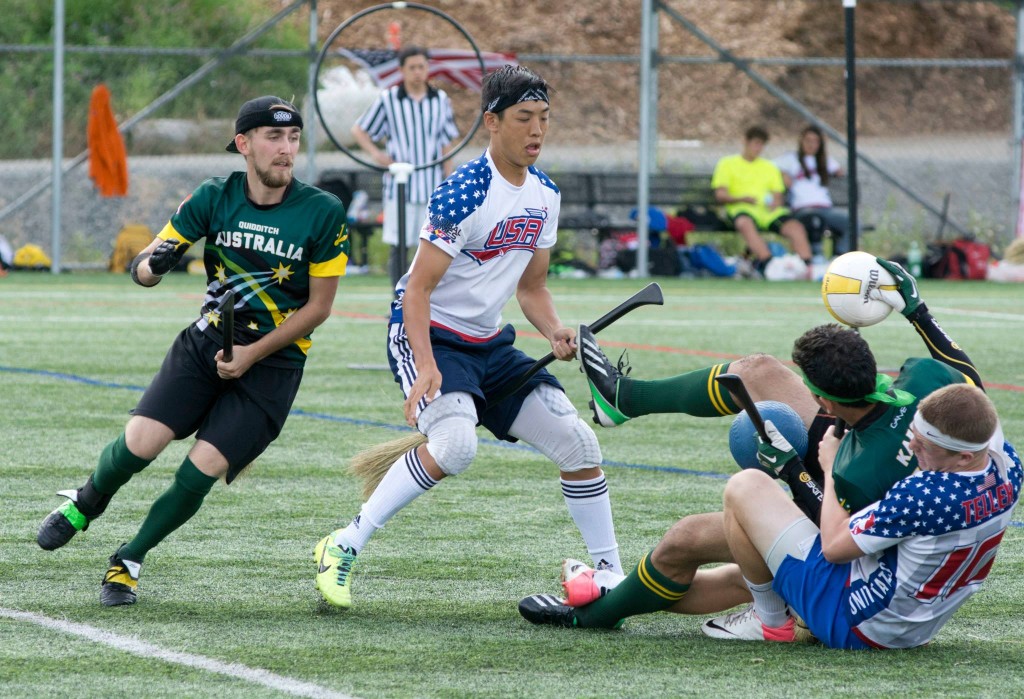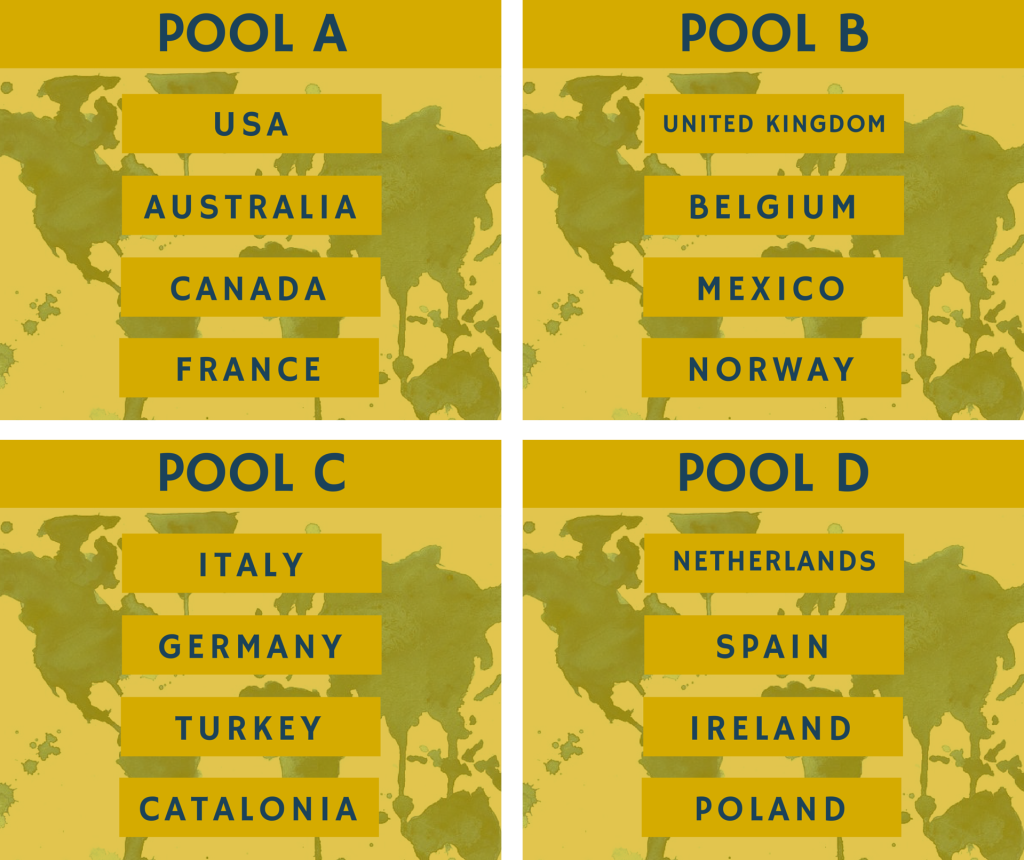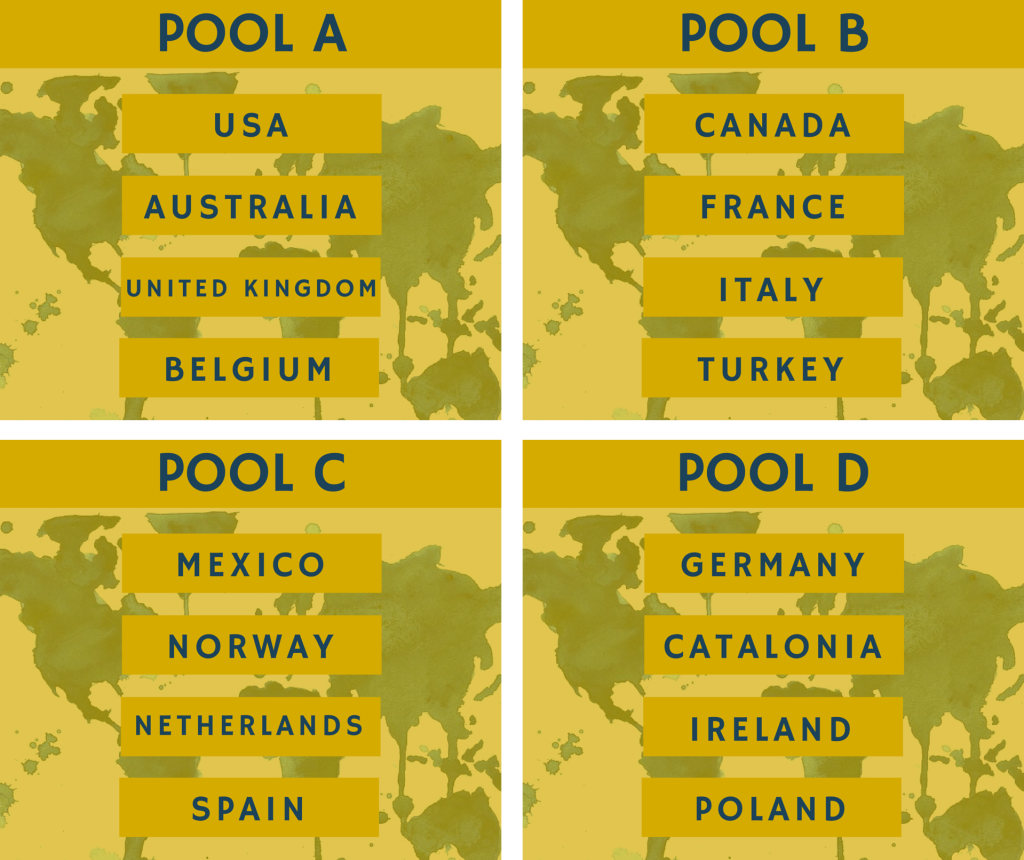- Rule, Britannia, no more?
- Unpopular Opinions: US Quadball Cup 2023
- Proven Contenders: University of Virginia
- Proven Contenders: Rutgers University
- Proven Contenders: University of Michigan
- Proven Contenders: Creighton University
- Different Perspectives: A Look Inside USA Ultimate
- Antwerp QC, Much of Belgian Core, Leaves Competitive Quidditch
What European Games Taught Us About the State of International Gameplay
- By Ethan Sturm
- Updated: September 2, 2015
This summer’s European Games was a massive, unmitigated success. The tournament garnered an NPR piece, a mention in The New York Times and a recap article in The Guardian that treated the tournament more like a sport than any major media source ever has. The city of Sarteano bought in fully to the event, and that kind of support could be invaluable in European tournaments or even Global Games down the line. With our sport’s media presence rapidly declining due to World Cups wasted away in South Carolina and the Harry Potter movies becoming older and older, the adrenaline shot European Games gave us was vital.
What European Games was not, however, was an entertaining quidditch tournament. There were 38 games played over the course of two days, and only five ended in snitch range, including just three of the 34 games before the semifinals. That means that not only were more than 85 percent of games on the weekend out of range—a truly striking number—but entering the semifinals, less than one in 10 games had a suspenseful finish. And it was not that a lot of games were just out of range either; the weekend overall had an average quaffle point differential well over 100 points per game. On top of all that, the format was set up so that we could only see a France vs. United Kingdom matchup once, and we almost did not get to see that.
I do not write all of this to be critical of the tournament—I will continue to assert that it was incredibly important for our sport—but I write this out of concern for next year’s Global Games. That the 2016 Global Games will be in Europe is basically the worst-kept secret in quidditch. It makes the most sense both in terms of logistics and team feasibility. But, in the case that it is played in Europe, we are probably looking at about a 16-team tournament—the 12 teams from this weekend, Team USA, Australia, Canada and either Mexico or another European team—supplanting this weekend as the largest national team tournament ever played in our sport.
Now, the most straightforward format is four pools of four, feeding into a 16-team single elimination bracket. Make the pools out of four pots based on previous performances of national teams, everyone gets a minimum of four games, etc. But with that format, you can almost definitely expect more of the same results we saw at European Games. Out of Team USA, Australia, Canada, France and the United Kingdom, only two would be in a pool together, and the rest likely would not see each other until the semifinals. After waiting two years to see how the top five nations in quidditch have developed in comparison to each other, we will likely get about five total games to see it, three of which could very well be Team USA blowouts. This is a stark contrast from Global Games 2014, in which every team played a match against every other team. In that 2014 system, these five nations would have played a total of 12 games against each other, instead of the less than half of what we would see in a four balanced-pool system.
Instead, I suggest a stacked pool system, similar to the one used in Olympic sports where the level of play is not particularly even across the world. Take, for example, the format used for women’s ice hockey in the 2014 Winter Olympics. The eight-team tournament featured two pools of four, with the best four teams in Pool A and the other four in Pool B. Then, at the end of pool play, the top two teams in Pool A advanced directly to the semifinals, the bottom two teams in Pool B were eliminated and the remaining four teams played play-in games to the semifinals. This increased the total number of competitive matches while still giving all teams a potential path to the medal podium.
So how can we extend this out to a 16-team tournament? I propose starting the tournament with four pools, from strongest to weakest, using past Global Games results as the main sorting factor and European Games results as a tiebreaker amongst European teams that have not competed in a Global Games. We end up with pools that looked something like the following:
Just in the first set of pool play games alone, this format creates so many of the matchups we are dying to see. USA, Australia, Canada and France get to play a full round robin; Norway and Belgium both get another shout at the UK; and young quidditch nations like Ireland do not have to play in games where the skill gap is so gigantic that the match is not even fun for anyone.
So where do we go from these pool rounds? Well, to maximize the interesting matchups, I would form a second series of pools based on the results of the first. The top two teams in each pool would move up a pool the second time around, and the bottom two would move down a pool. That means that the second set of pools would end up looking something like:
Once these pools are completed, either by the end of Saturday or the beginning of Sunday, they would break down into bracket play. The top two teams in Pool A would get the top two seeds, the top two teams in Pool B would get the next two, and all four would get a bye to the quarterfinals. The play-in round would feature games between the bottom two in Pool A and the top two in Pool D as well as the bottom two in Pool B and the top two in Pool C. The bottom two in Pools C and D would be eliminated and play consolation games during bracket play. The bracket for this hypothetical situation could end up looking something like:
1) USA vs. 8) Italy / 9) Norway
4) Canada vs. 5) UK / 12) Germany
3) France vs. 6) Belgium / 11) Catalonia
2) Australia vs. 7)Turkey / 10) Mexico
This system is undoubtedly more complex than just having four equal pools of three. But it is also infinitely more interesting, while balancing the advantage of being in a high pool to start—Pool A teams the first time around cannot miss bracket play—with the grind of having to play stronger teams. But, most importantly, it makes for far more interesting games, from start to finish, giving one of our sport’s biggest events a way more competitive feel.
European Games was a benchmark event in the history of quidditch. The levels of city support and media coverage on an international level, as well as the future expansion it enabled in multiple countries, will be invaluable going forward. But we cannot waste these opportunities to display the high-level play our sport is capable of, and with a more parity-heavy format, we can do just that next summer.
Related Posts
About Ethan Sturm
Ethan is the co-founder and former managerial editor and chief correspondent of The Eighth Man. When not talking quidditch, which is rare, he can be found drilling people's teeth and spending time with his elusive wife. He's also the worst.






